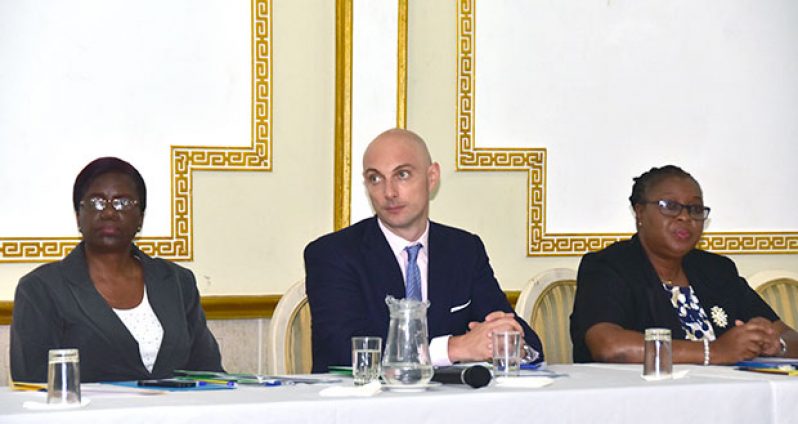By Vishani Ragobeer
THE Ministry of Education and the United Nations Children’s Emergency Fund (UNICEF) have joined forces to tackle cases of out-of-school children with the aim of minimizing, if not eliminating the problem.Both agencies elaborated on their plans to address this burning issue at an Out-of- School Children Initiative (OOSCI) workshop on Wednesday.
The OOSCI is an initiative by UNICEF to promote the 4th Sustainable Developmental Goal, which is to “Ensure inclusive and quality education for all and promote lifelong learning.”
Guyana is now under the stewardship of UNICEF and intends to create an inventory of updated data on how many children are out of school, the reasons for them being out of school and ways in which the Ministry of Education can effectively combat this issue.
Wednesday’s workshop was aimed at building the capacity of the participants, who comprised of Ministry officials and other involved stakeholders, to undertake the study of out-of-school children.
It was also expected to achieve agreements with the Ministry of Education and key stakeholders to initiate the OOSCI study in Guyana.
UNICEF Deputy Representative for Guyana and Suriname Paolo March applauded Guyana for attaining Universal Primary Education and urged that it works harder to achieve Universal Secondary Education.
March said the study and implementation of the findings will help Guyana to answer the questions of why all local children are not receiving an education and what can be done to ensure that all children, even the marginalised, receive full schooling.
He said the UN body will work diligently with the Ministry of Education to provide “good quality education” for all.
Deputy Chief Education Officer, Donna Chapman, who also spoke at the workshop, was of the view that societal ills may not be the only contributing factors to children drop outs, but also a limited education system.
She questioned the amount of trained teachers in the school system and their abilities to identify a child facing emotional turmoil and to cater for children in need of remedial education.
There is also a lack of guidance counsellors and welfare officers in the school system.
But Chapman noted that Guyana has been making some strides in providing easier access to education to children across all 11 educational districts.
She mentioned President Granger’s 5Bs Initiative, the provision of exercise books and some text books geared at promoting and improving access to education.
As a result of these initiatives, she noted that Guyana has seen an increase in the number of children enrolled in schools and accessing education.
Ministry of Education Permanent Secretary Delma Nedd lamented the lack of data on out-of-school children, but was happy that this matter is being addressed.
Some 92 per cent of nursery age pupils have access to education while 84 per cent of those of secondary school-age have access to secondary education.
Guyana will receive both technical and financial support from UNICEF to carry out the OOSCI study.




.png)









